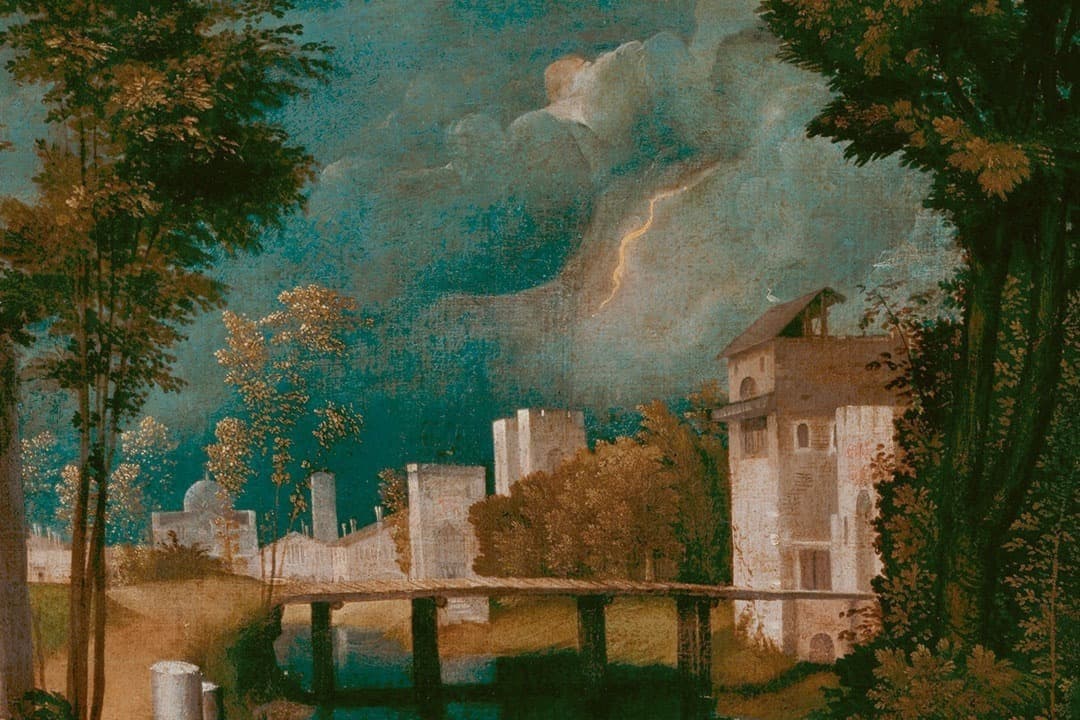
La tempestad theartwolf
Giorgione - The Tempest. It is one of the most famous paintings in the world, but why? Not much happens here. Two figures flank the painting on the right and left. In the center, the view clears; a river, a bridge, walls, houses and towers are visible. And above them - out of a puffy cloud - a short bright flash climbs into the picture.
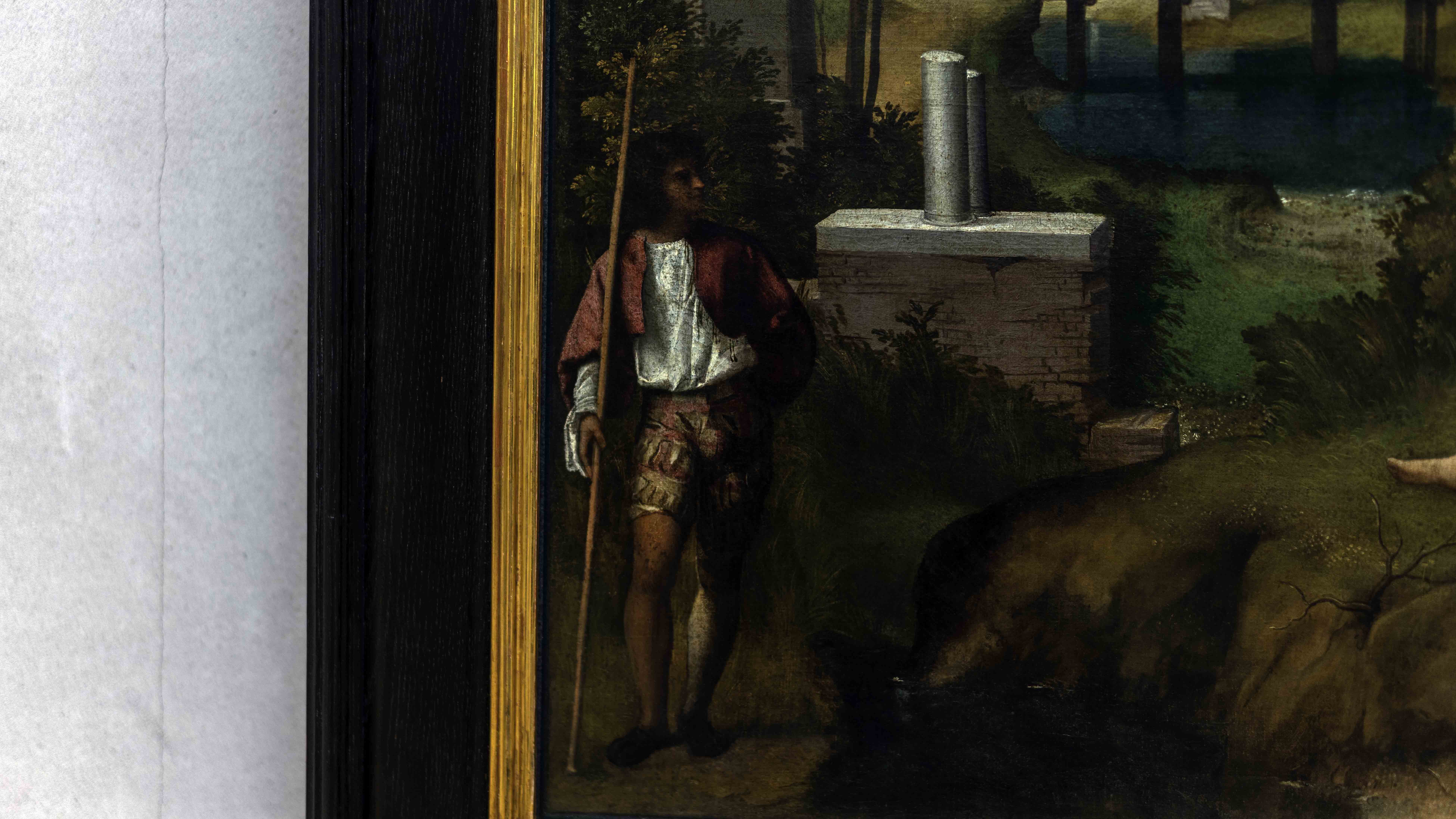
» The Tempest
Title: The Tempest Catalogue: 915 Support: Canvas, 82 x 73 cm Provenance: Purchased from Prince Giovanelli, 1932 Hall: Hall VIII You might also be interested in Giorgio o Zorzi da Castelfranco detto Giorgione Giorgio o Zorzi da Castelfranco detto Giorgione Giorgio o Zorzi da Castelfranco detto Giorgione The Tempest |
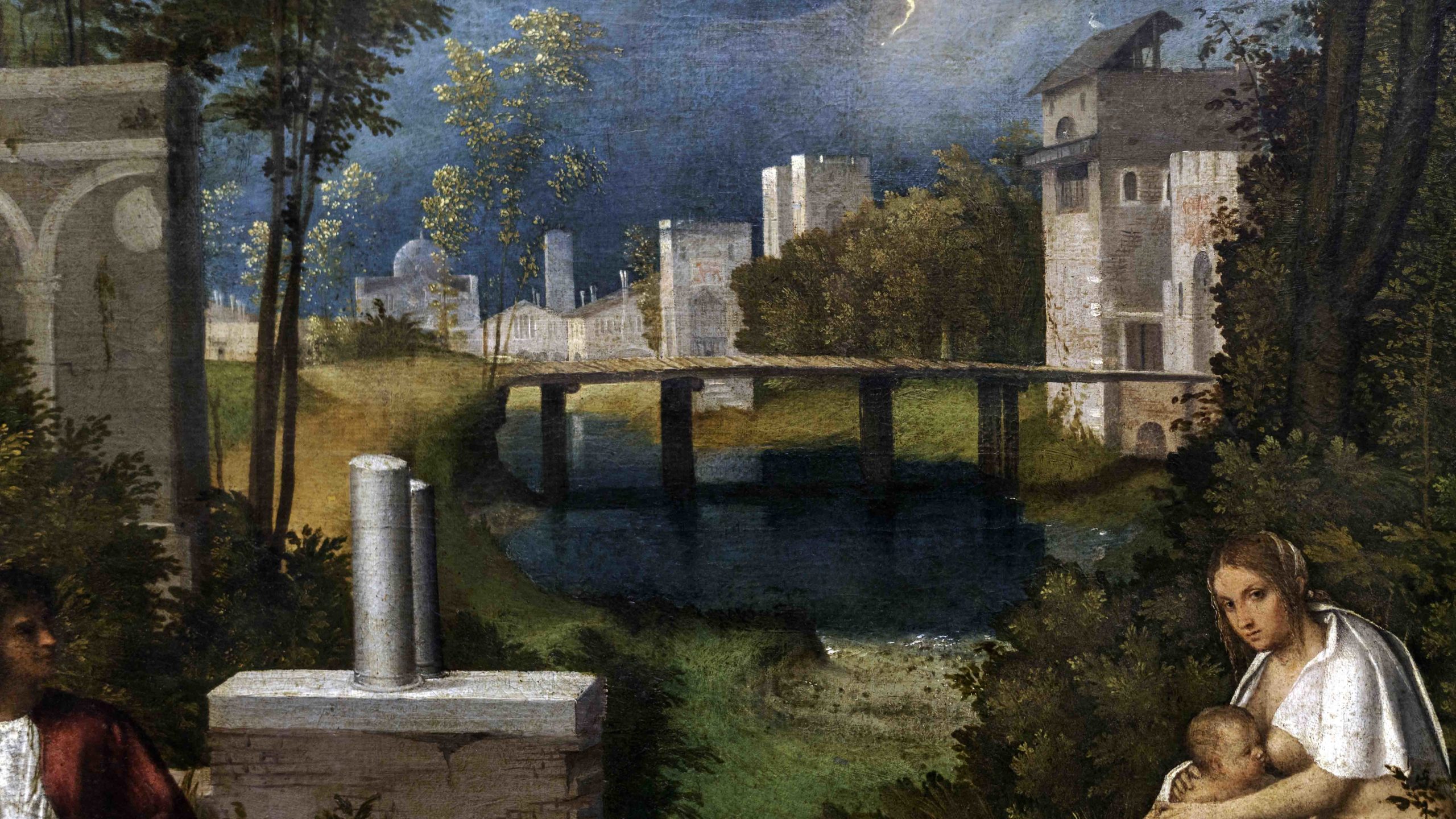
» The Tempest
It seems that Giorgione was born in the small town of Castelfranco Veneto, 40 km inland from Venice in 1477-78 or 1473-74. It's not even clear when he moved to Venice. However, stylistic evidence supports the theory that he apprenticed under Giovanni Bellini: another great Renaissance artist. The Tempest - Giorgione.

The Tempest Wikipedia
The invention of Giorgione's much-interpreted painting known as The Tempest can be explained with reference to the De rerum natura of Lucretius. Lucretius provides the essential connection between the main elements of the painting: a male 'wanderer,' a lightning bolt, broken columns, a naked, nursing female, and a landscape rendered according to momentary, fleeting appearances.
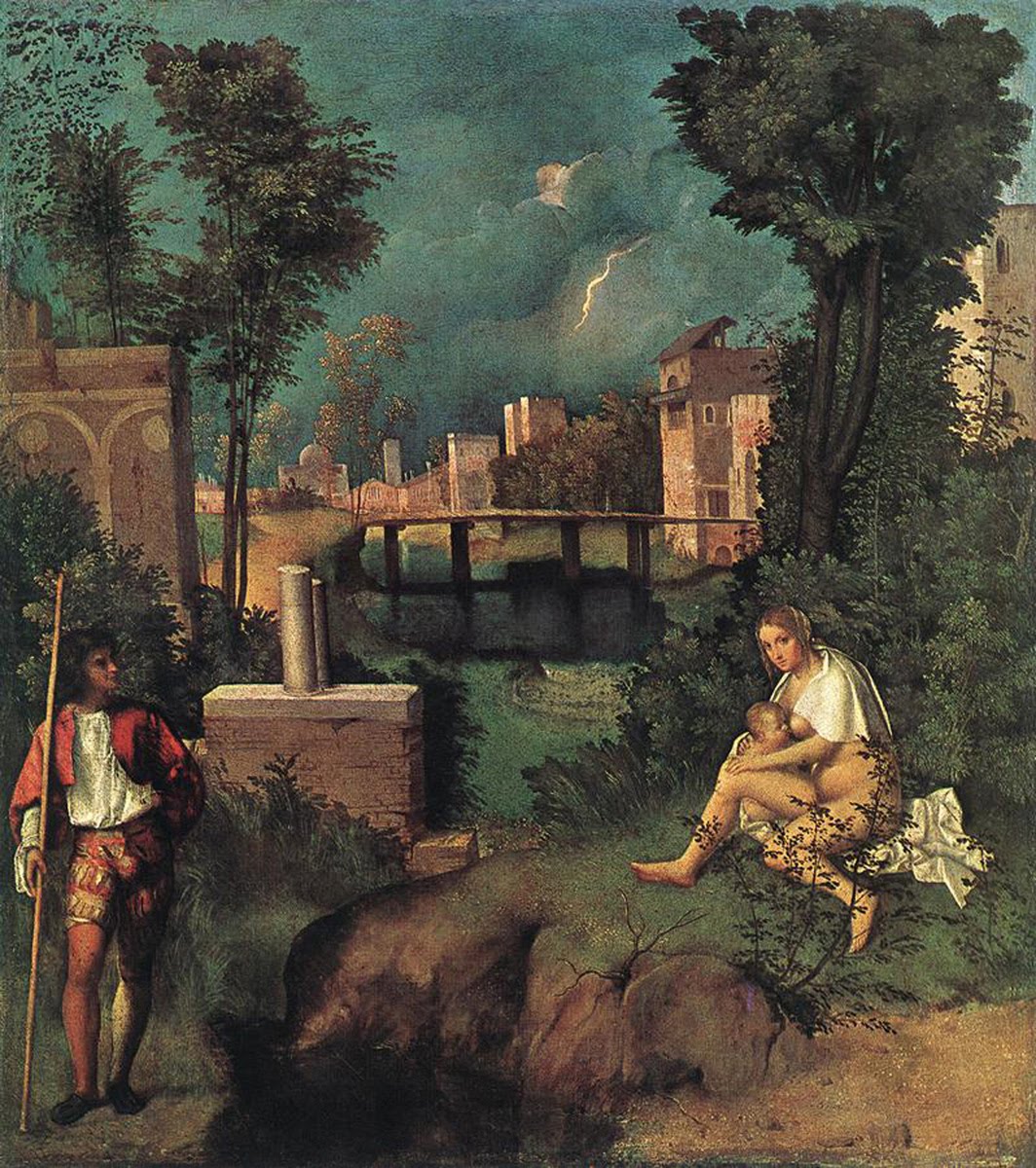
The Art History Journal ve Fırtına
The Tempest (1508) Contents • Description • Analysis • What is the Meaning of the Tempest? • Other Venetian Paintings Explained Description Name: "The Tempest" (La Tempesta) Date: 1506-8 Artist: Giorgione (Giorgio Barbarelli da Castelfranco) (1477-1510) Medium: Oil painting Genre: Landscape painting / or history painting

La Tempesta HD Walls Find Wallpapers
A burst of lightning illuminates a countryside engulfed in a thunderstorm. Its sudden flash reveals a curious scene: a fashionably dressed man standing on a riverbank eyeing a nearly nude woman seated on the opposite shore nursing an infant. The figures are alone in an otherwise lush landscape that glows turquoise in the storm's humid air.
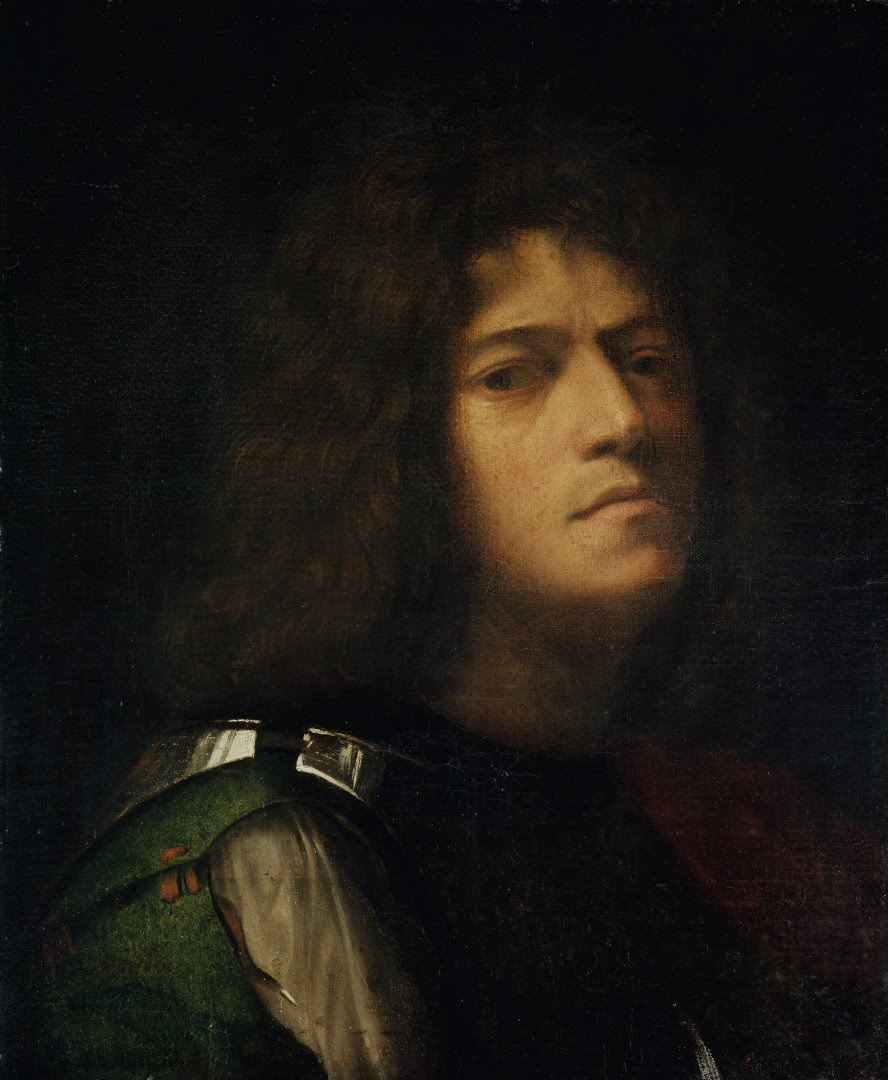
» The Tempest
The Tempest is a milestone in Renaissance landscape painting, with its dramatization of a storm about to break. Here is the kind of poetic interpretation of nature that the Renaissance writers Pietro Bembo and Jacopo Sannazzaro evoked. This feeling for nature is probably also intimately… Read More Renaissance art

The tempest 15021503) (see online version for colours
As one of only six surviving paintings attributed to Giorgione—who died at a young age— The Tempest has remained shrouded in mystery. The vividly colored work depicts an anonymous woman breastfeeding her baby on the right-hand side and a soldier carrying a long staff in the left corner.
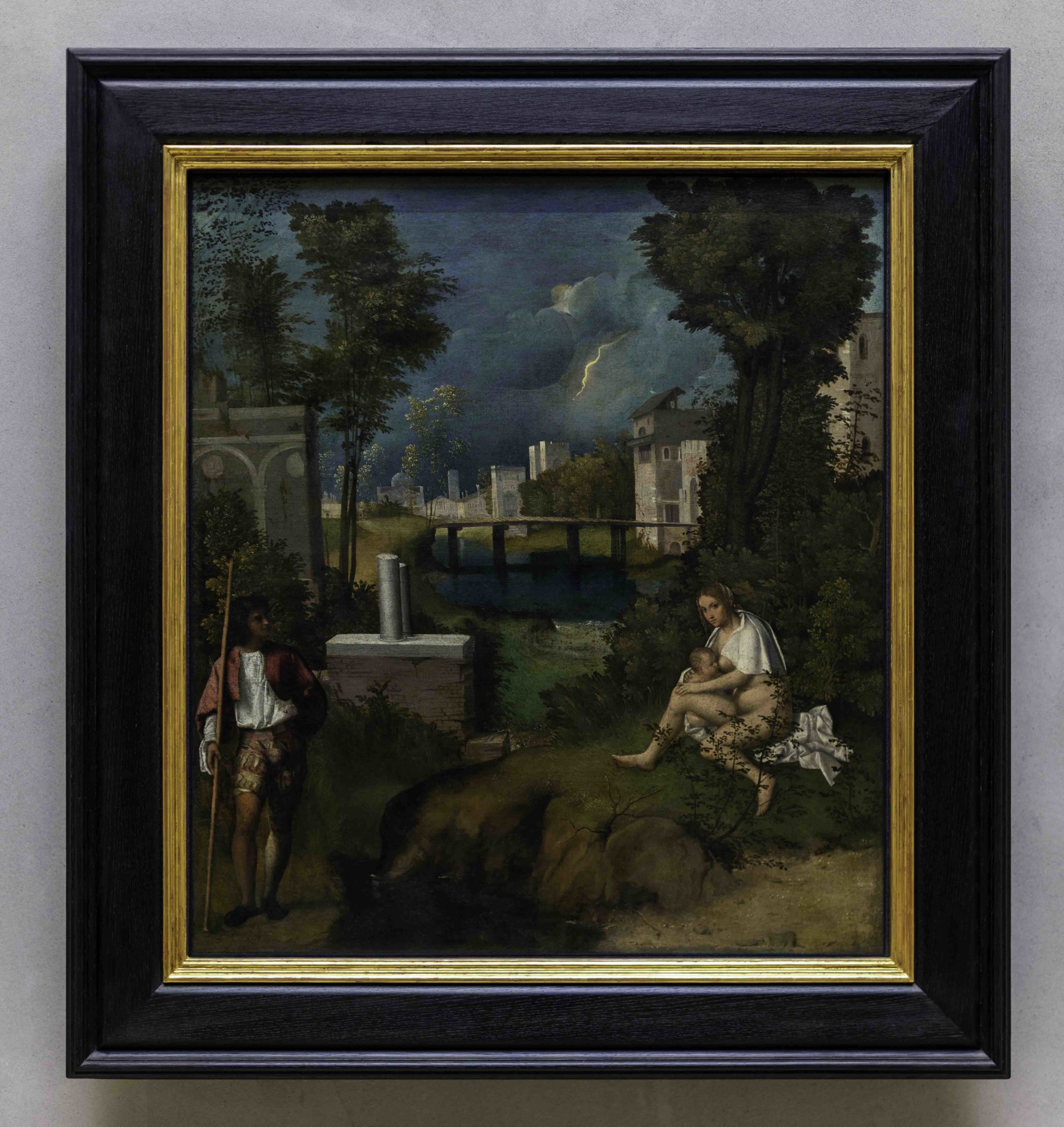
» The Tempest
Giorgione and the High Renaissance in Venice. A search for luminous color and intuitive responses to nature—a pursuit, above all, of the sensuous—occupied painters in Venice for centuries. While artists in central Italy concentrated on the more intellectual aspects of form and structure, Venetian painters, beginning with Giovanni Bellini.

The Tempest, c. 150608 (Accademia, Venice) Renaissance
The Tempest, according to these hypotheses, represents a deeply nostalgic vision of Venetian territory as a peaceful Golden Age Arcadia during a period when the Veneto region was in fact under siege from foreign armies during the War of the League of Cambrai (1508-17).
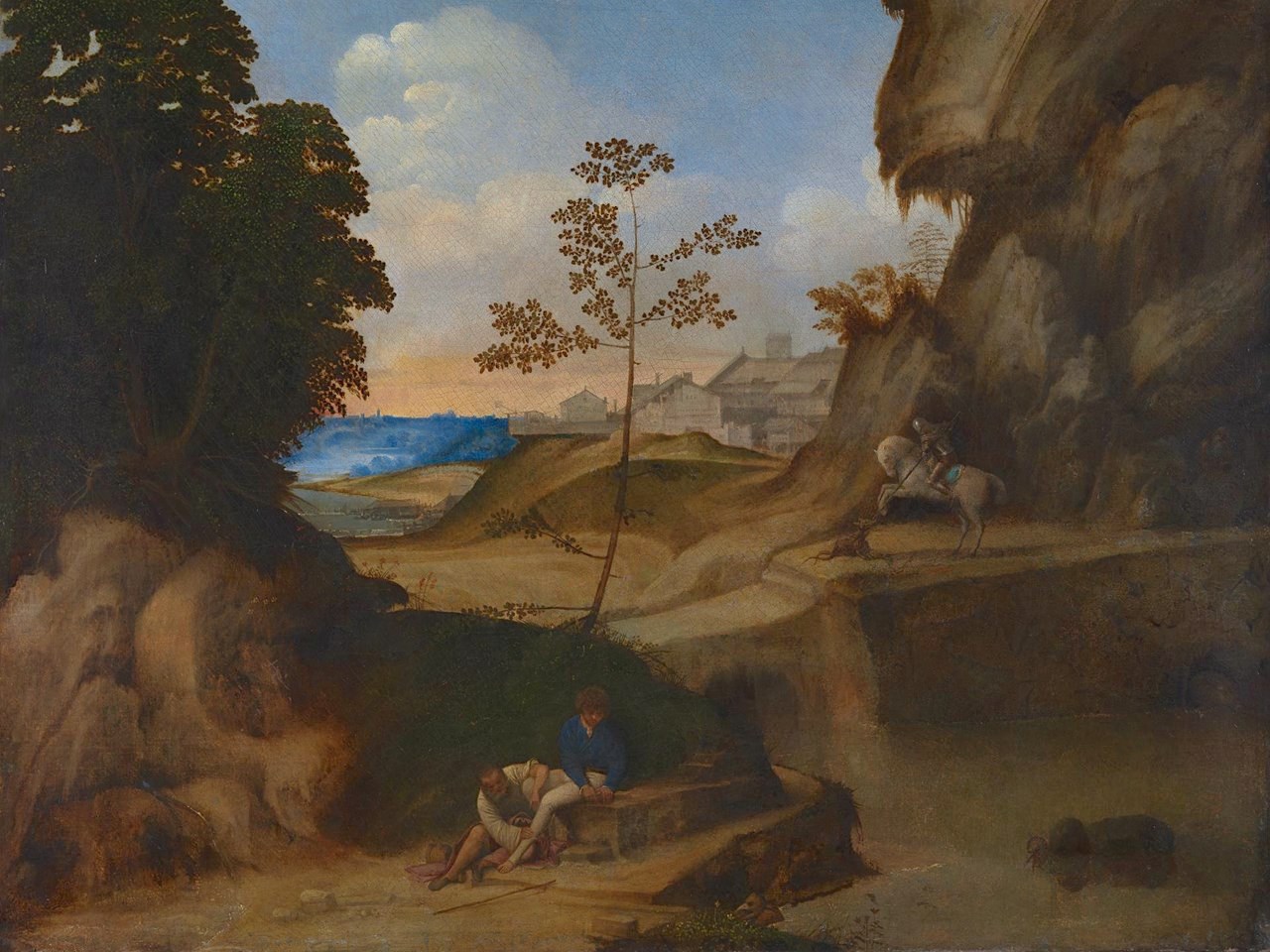
» The Tempest
The Tempest (Italian La Tempesta) is a Renaissance painting by the Italian master Giorgione dated between 1506 and 1508. Originally commissioned by the Venetian noble Gabriele Vendramin, the painting is now in the Gallerie dell'Accademia of Venice, Italy. Despite considerable discussion by art historians, the meaning of the scene remains elusive.

Pin on Journal
"The Tempest" "The Three Philosophers" Movement / Style: Early Renaissance Renaissance art Venetian school Renaissance
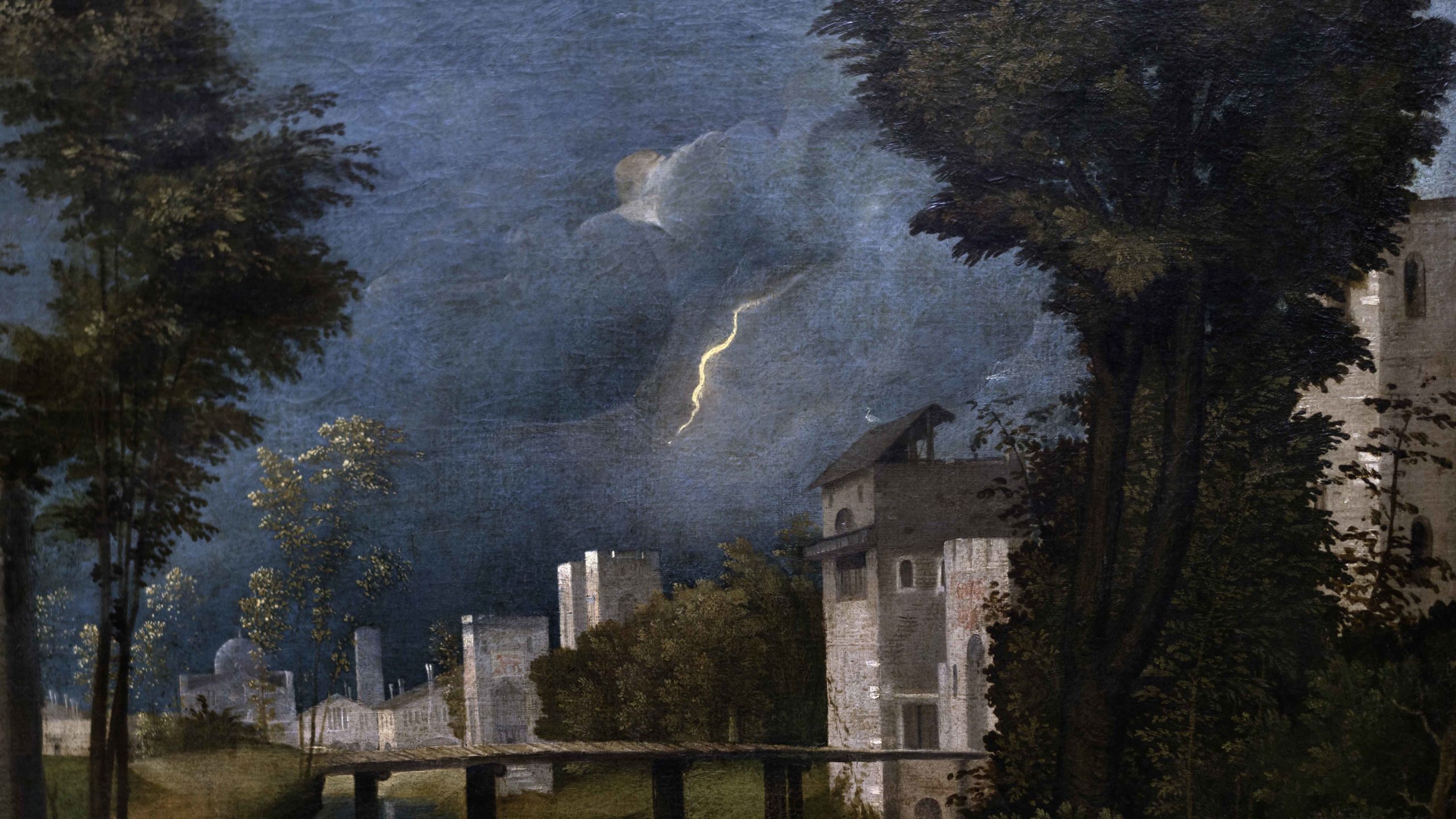
» The Tempest
Most probably commissioned by wealthy Venetian, Gabriele Vendramin c.1506, The Tempest is widely considered to be the earliest example of landscape painting in western art. It beautifully illustrates the mastery of colour, tone and blended light which was indicative of the work produced by Giorgione and the Venetian School.

Italian Renaissance Painter & Master of Color Britannica
Giorgione, The Tempest (video) | Venice | Khan Academy Europe 1300 - 1800 Course: Europe 1300 - 1800 > Unit 4 Lesson 9: Venice Correggio, Jupiter and Io Correggio, Assumption of the Virgin Veronese, The Family of Darius Before Alexander Veronese, the Dream of Saint Helena Transcript of the trial of Veronese Tintoretto, the Miracle of the Slave

Storm by ️
The Tempest (Italian La Tempesta) is a Renaissance painting by the Italian master Giorgione dated between 1506 and 1508. Originally commissioned by the Venetian noble Gabriele Vendramin , the painting is now in the Gallerie dell'Accademia of Venice , Italy .

What is the meaning of ‘La Tempesta’? adventuresinarthistory
Giorgione, The Tempest (1506-1508). 💡 Did you know? Giovanni Antonio Amadeo (Pavia 1447-Milan 1522) was a Lombard architect and sculptor, trained on the site of Milan Cathedral and, at the same time, on that of the Certosa di Pavia, for which he made the reliefs on the façade and the entrance door to the church in the small cloister.